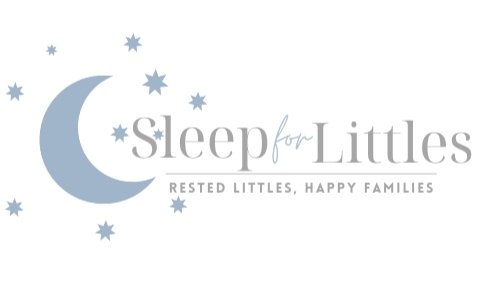Teething & Baby Sleep
Is it just me or does teething seem to happen constantly for the first two years of life? Whether you feel the same or not, this post is going to explore teething, it’s symptoms and the impact it has on baby sleep.
A Teething Story
Around 4.5 months of age, my husband and I swore my son was teething. His hands were constantly in his mouth, he was drooling up a storm and his night time sleep was a total mess. You know when his first tooth (4 at once) popped through? At around 10 months of age, the morning before we left for our family vacation to Aruba. Want to know what else? He slept soundly during the nights leading up to the day those teeth cut through. This is because teething actually doesn’t disrupt night time sleep. Teething causes most of its discomfort 24-72 hours prior to the tooth popping through the gum. Once the tooth is through, the pain dissipates almost immediately. Check out the research behind that here!
Signs & Symptoms
Did you know that there are two stages of teething? These stages are known as Acute Teething and Chronic Teething. Chronic teething is the drooly, hands-in-mouth stage. Acute Teething is the 72 hour time period prior to the tooth actually cutting through the gum. Parents attribute many teething to be the cause of many things. To check if your suspicions are right, check out the chart below!
*Can occur as part of normal baby development.
How Can You Help?
Try teething toys.
Give baby a cold washcloth to chew on.
Gently massage baby’s gums.
Offer comfort (hold, babywear, rock, nurse/feed)
Avoid amber necklaces and teething gels
Talk to your doctor before trying homeopathic remedies.
Administer pain relief if needed
*Pain from teething is caused by inflammation of the gums. I’m Motrin often works best to relieve pain caused by teething. However baby must be 6 months of age or older to receive Motrin.
Teething & Sleep
Every baby is truly different but newborn’s, who have a strong sleep foundation, tend to handle teething much better during naps and night sleep. The tried and true advice I tell parents is that teething is inevitable but if you lay a strong foundation during the first few months of life, your baby will handle teething like a champ. Many parents report that their little’s sleep soundly through the night and often wake up well-rested with a new tooth! If your baby is between 5-24 months of age, there is hope for you. Sleep training is a plan that can be implemented and referred to during teething, sickness, separation anxiety, and other setbacks and regressions.
Now let’s say you’ve always had a great sleeper, who is now all of a sudden, struggling. It may be possible that your little is struggling with an illness or something that requires further investigation. Remember that inconsolable crying is not typically a sign of teething.
If you determine that your little is in fact teething, remember that consistency is still so important. Try to maintain your normal bedtime process and approach to night wakings. If you feel that your little one is struggling with pain, be sure to consult your pediatrician for pain management options.
Teething and baby sleep can be tricky to navigate but with the right education and tools in your back pocket, you’ll rock this!

